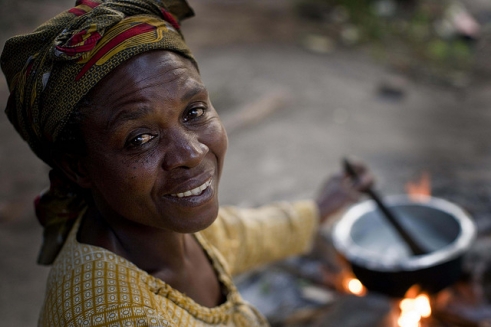By Bharat Azad
Last night, the UN High-level Panel on the post-2015 development process published its long-awaited report which sets out recommendations for a new global and universal development framework beyond the Millennium Development Goals (MDGs), which expire in 2015.

Older people absent
HelpAge International is disappointed that ageing and older people are almost completely absent. In a world where there will soon be more people over 60 than under 10, any new global development framework needs to address population ageing and its consequences.
Yet, the High-level Panel does not appear to envision a future where older people will comprise over one fifth of the world’s population by 2050. There is no recognition in the narrative of older people contributing to society or being affected by poverty.
One of the key failures of the report is the consistent underplaying of the central role of social protection – which includes access to pensions – in reducing poverty and inequality for people of all ages.
The report appears to lean towards a view of social protection that focuses on targeting the needs of specific groups and – preferably – not cost too much.
More investment in social protection needed
This flies in the face of growing global recognition of the need to increase investment in social protection and for countries to establish nationally-owned systems. This has been called for by over 150 governments and other key actors such as the UN, EU and G20 systems.
The social protection floors approach, that HelpAge has emphasised throughout the process, instead sees social protection as a foundation for inclusive growth and human development.
Inclusive and open process
Despite these criticisms, we applaud the inclusive and open nature of the process. For a process of such size, the degree of narrative coherence is an achievement.
There is also demonstrable ambition in the goal of eradicating poverty (Goal 1) and in ensuring healthy lives (Goal 4), which calls for full vaccination of a number of age groups, including older people and a focus on non-communicable diseases.
The section on data disaggregation, which suggests that all data be disaggregated by “gender, location, age, people living with disabilities, and relevant social group”, is also a much-needed correction to one of the great faults of the MDGs, which left a huge data gap on older people.
However, much of what is positive risks being lost without a strong narrative on ageing and older people. By ignoring the challenges of this rapid shift in world population, the High-level Panel is preparing for a world of the present, not of the future.
HelpAge International’s CEO Silvia Stefanoni is attending the New York launch event on Friday 31 May 2013 and is available for interview, please contact Bharat Azad on +44 (0) 20 7148 7606 (mobile: +44 (0) 7866 523030) or email bazad@helpage.org)
